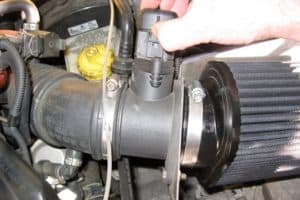A car tune-up is a routine maintenance procedure for your vehicle. This includes changing your oil, replacing your air filter, and replacing your spark plugs. Typical costs for a tune-up will vary depending on your car and the service you need.
A tune-up costs about $500. You should expect to pay $70-$130 for an oil change, $35-$70 for an air filter, and $25-$130 for spark plugs. A few specialized tune-ups can cost between $200 and $800. The average tune-up cost depends a lot on how old your car is.
Read on to learn more about how much a tune-up costs and what is included in a tune-up.
How Much Does a Tune-Up Cost?
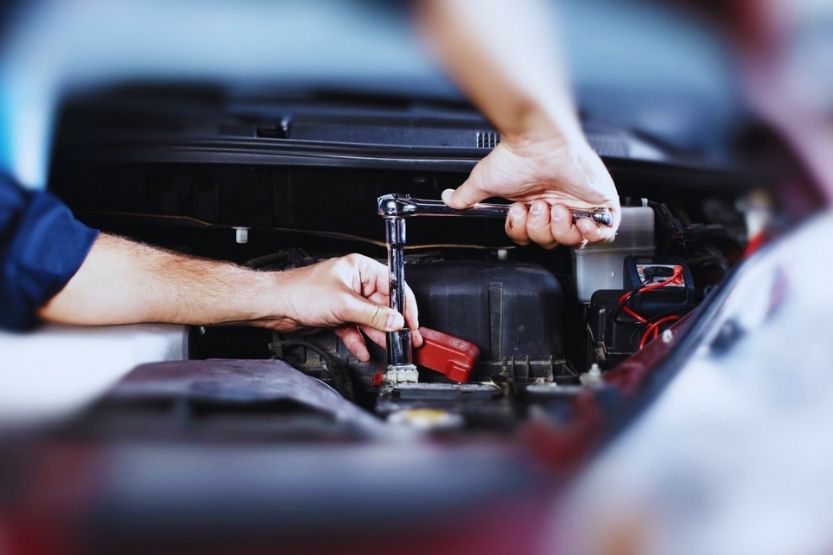
A tune-up costs about $500. This includes about $70-$130 for an oil change, $35-$70 for an air filter, and $25-$130 for spark plugs. Specialized tune-ups can cost between $200 and $800.
What Happens During a Tune-Up
If your car is not running smoothly or if you notice any warning signs, it may be time for a tune-up. A tune-up involves inspecting and fixing any problems with your car. This can include replacing old parts like spark plugs and filters.
The tune-up may also include replacing the air filter, checking the timing belt, and more. You can find a qualified mechanic by asking family and friends or looking online.
Don’t Be Afraid to Ask Questions
Don’t be afraid to ask questions when dealing with mechanics. Your car is essential, and if you don’t understand something, don’t be scared to ask. Ensure that you know what they tell you and answer all your questions in full detail.
How to Save Money on Auto Repairs
Save money on auto repairs by finding out what parts and services your insurance provider offers for free. Find this information online or in your insurance policy’s fine print.
Not all auto insurance companies offer the same things, so consider switching providers if yours doesn’t provide something that might help your situation.
Look for warning signs of overpriced automobile repairs before agreeing to work on your vehicle. If a mechanic wants to charge $400 for an hour of labor while others nearby charge $250 for the same service, ensure the reasoning behind the difference in cost.
Question them about their prices and see if they’re willing to work with you on costs before committing yourself financially.
Inspect the New Tires
Inspect any new tires before taking them home after buying them. Look at each tire’s sidewalls and ensure that they are not cracked or flattened in any way that would cause air leakage when driving at high speeds or long distances.
You may need new tires immediately if there are signs of damage like this on one or more tires as soon as possible.
Prioritize the Main Family Car
If you have multiple cars, ensure your main family car gets taken care of first. For example, take care of the brakes in one car first because it’s more important than the other, such as taking care of a newer truck before an older sedan with more mileage.
This can become problematic if the sedan has problems later since you first took care of its older brakes. It’s always wise to maintain all cars equally so this doesn’t happen.
What Is Included in an Engine Tune-Up at Firestone?
What Does a Tune-Up Normally Include?
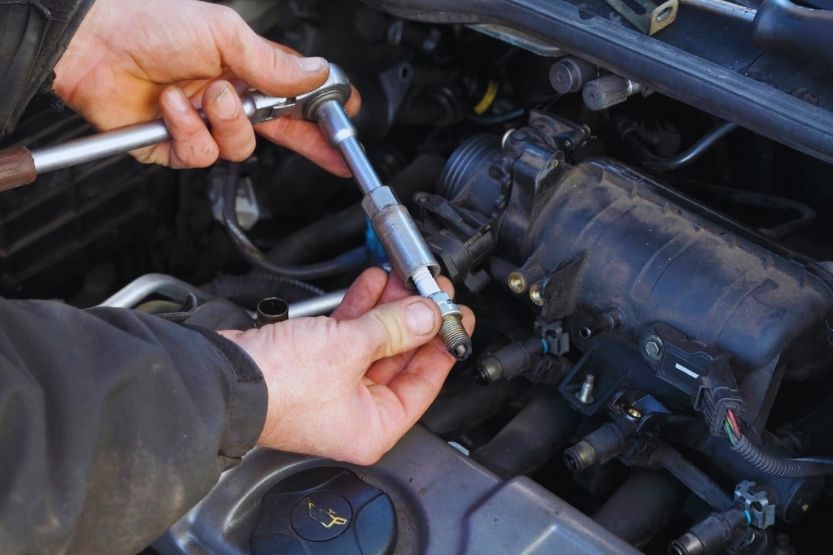
The following are the basic things included in the cost of a tune-up:
1. Replace Spark Plugs and Wires Or Coil Boots
Parts That Bring Power from Engine to Wheels
A car tune-up is a process that includes replacing spark plugs and wires or coil boots. This is important as they are the parts of the car that bring power from the engine to the wheels. When these parts break down, it can cause many problems with the car’s engine and performance.
Car Running Rougher Needs a Tune-Up
One way to tell if your car needs a tune-up is if it starts running rougher than usual. Another symptom that your car may need a tune-up is if it starts running hot for no reason.
You should tune up your car every 60,000 miles or at least once per year. You could do this or take your car in for an appointment with an auto mechanic.
2. Set Ignition Timing (If Needed)
The ignition timing is the positioning of the spark plug inside the cylinder. It is essential to control the air and fuel mixture to ensure it burns properly. The ignition timing is set during a car tune-up and should be checked periodically.
The manufacturer’s recommended setting for your engine is usually printed on a sticker in the engine compartment.
3. Replace Engine Air Filter
Replacing the engine air filter is important since it helps clean the air going into your engine to help it run properly. This is an excellent time to change your air filter if you haven’t in a while because doing so can improve gas mileage and make your car run smoother.
4. Replace the Fuel Filter (If Needed)
One of the most important parts of a car tune-up is replacing the fuel filter. The fuel filter removes any impurities from the engine’s gas supply, which helps to prevent damage to your car’s engine.
You should replace the fuel filter every 15,000 miles or every two years, whichever comes first. This relatively inexpensive part is well worth the small investment.
5. Clean The Throttle Body (If Needed)
One of the first things you should do during a tune-up is clean the throttle body. This part of your engine helps regulate air and fuel intake; dirt and debris can accumulate over time.
Your car’s owner’s manual will tell you how to enter this part of your engine. Once you clean the throttle body, it should look like new again.
6. Fuel System Cleaning
Ensures the Fuel System Operates at Peak Efficiency
When you have a car tune-up, it is important to have your fuel system properly cleaned. A tune-up ensures that your fuel system is operating at peak efficiency.
When you hire a repair shop to perform a tune-up on your vehicle, they will clean the fuel system and ensure no leaks, and that everything is working properly.
The level of service you receive during a car tune-up will depend on how often you bring your vehicle to a car service shop. The tune-up should be relatively simple if you have been taking your vehicle in for regular maintenance services.
If you haven’t had your vehicle serviced in quite some time, the technician may find more work to do than they would if they had more recent service records.
Ensures the Fuel Delivery System Is Clean
A fuel system cleaning during a car tune-up will help ensure that everything runs smoothly and that your fuel delivery system is free from dirt or debris. The technician will ensure all filters are removed and cleaned before putting everything back together again.
They may also decide to replace any parts or filters as necessary, depending on what kind of shape they find everything in when they begin their inspection process. In addition to cleaning out all of the filters, technicians will also ensure that there aren’t any leaks present with hoses or connections.
7. Replace Distributor Cap Or Rotator (If Needed)
The mechanic will probably replace the distributor cap and rotor when you take your car in for a tune-up. This helps to improve the efficiency of the spark plug.
If you don’t replace them, you may experience difficulties starting your car. The new distributor cap and rotor’s arm will help evenly channel the voltage to your spark plugs.
8. Replace PVC Valve (If Needed)
A mechanic repairs a PVC valve during a car tune-up to fix a leak. Often, the valve is disconnected and replaced with a new one.
Again, how much does a tune-up cost? On average, a tune-up costs around $500. However, this price will vary depending on your car’s age. Usually, an oil change is around $70-$130, an air filter is approximately $35-$70, and a spark plug replacement is about $25-$130.
Benefits Of A Car Tune-Up
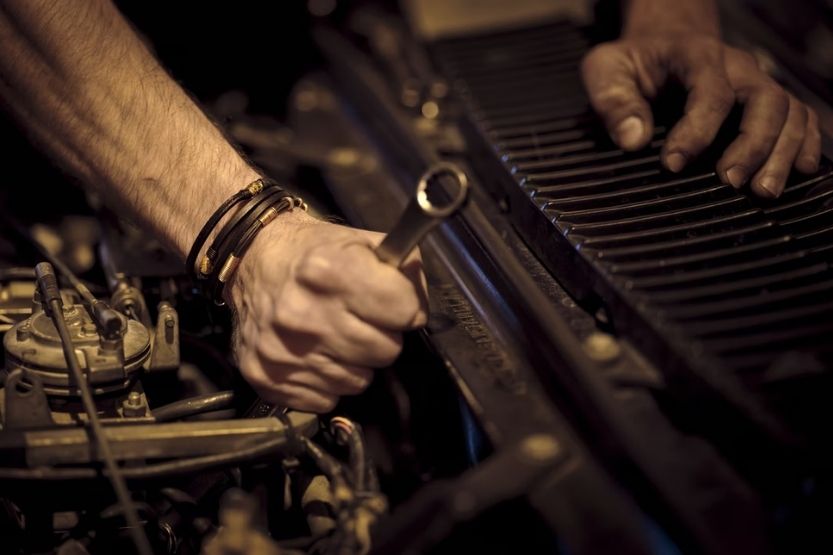
Car tune-ups are an essential part of maintaining your vehicle. Regular tune-ups can help your engine run more efficiently, save on gas, and reduce the risk of breaking down.
Here are some benefits of tuning up your car regularly. So a tune-up may appear to cost too much at first, but it really will save you money in the long run from more expensive repairs:
1. Reliable Vehicle
Whether your vehicle is running poorly, not starting, or experiencing other issues, it is essential to check the car. The car’s engine needs to be in top condition to run smoothly. When the engine is not well maintained, the engine will leak oil and water.
Oil is essential for protecting your engine from overheating, and water will cause rusting. This can lead to thousands of dollars in repairs that you could easily avoid with a simple tune-up.
2. Enhances Fuel Efficiency
You will often notice an improvement in fuel efficiency after a car tune-up. This means that your car will use less gas than before.
3. Increases Value
If you’re looking to increase the resale value of your car, then one of the best things you can do is get it tuned up. Your vehicle will run better with a tune-up. You’ll get more miles per gallon and enjoy a smoother ride.
4. Reduces Emission
Car tune-ups are a great way to reduce emissions. It’s essential to have your car tuned regularly, as it can also help maintain the longevity of your engine. A tune-up helps your engine run more efficiently, so you use less gas and produce fewer emissions.
A tune-up will typically include replacing your air filter, and checking your tire pressure, lights, oil change, and belts.
How Do You Know Your Car Needs A Tune-Up?
When your car starts acting up, it can be hard to tell if it just needs a tune-up or if something more serious is happening. Tune-ups are essential for maintaining the health of your car, so here are a few signs that you might need one:
- The car starts to have issues accelerating; it may be time for a tune-up.
- The engine makes a lot of noise or smells gas; those are signs that your car needs a tune-up.
- If you notice that your oil change light is on, that means your car is overdue for an oil change, which may also indicate that it’s time for a tune-up.
- Tune-ups can help keep your car running smoothly and help with fuel efficiency and the environment’s health.
Conclusion – How Much Does a Tune-Up Cost?
A tune-up costs about $500 on average. You should expect to pay about $70-$130 for an oil change, $35-$70 for an air filter, and $25-$130 for spark plugs.
A tune-up is designed to improve the fuel economy, power output, and overall performance of your engine by replacing old and new parts. When it comes to improving your car’s performance, there are two types of tune-ups: major and minor.
A major tune-up includes a thorough inspection of all the components of your vehicle’s engine, including the spark plugs and wires, fuel injectors, and intake valves.
Minor tune-ups are usually more basic and include routine maintenance such as inspecting belts and hoses, changing the air filter, and topping off fluids like oil or transmission fluid.
Regular tune-ups can reduce fuel consumption by as much as 10% and improve your vehicle’s fuel efficiency. Tune-ups can also help your vehicle maintain its resale value.
Regular inspections can also help identify problems before they become serious, saving you time and money later.
Read next:

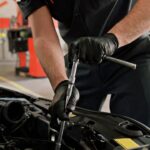



![Cost of Tire Rotation [Average Rotation Cost] Cost of Tire Rotation](https://roadsumo.com/wp-content/uploads/2021/10/cost-of-tire-rotation-150x150.jpg)

![Read more about the article Brake Lights Won’t Turn Off [Causes and How to Fix]](https://roadsumo.com/wp-content/uploads/2021/05/brake-lights-wont-turn-off-300x200.jpg)
